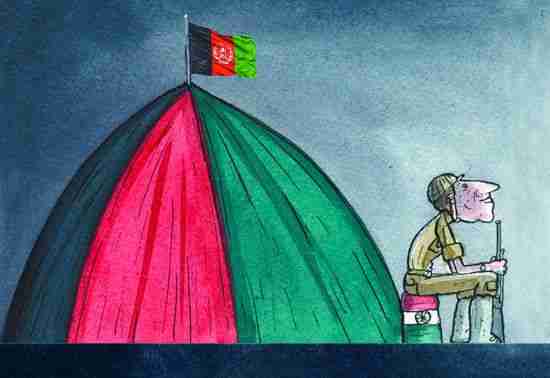India should leave Afghanistan
As President Obama has indicated, apart from the Chinese threat―with the nuclear deal and defence cooperation on track―it is the future of Afghanistan that is still of concern to the US. And he wants India to continue its involvement in that war-torn land. Policy makers in Delhi are not averse to the idea for reasons ranging from protecting India’s infrastructural investments worth $2 billion to countering Pakistan’s involvement―Pakistani generals regard Afghanistan as a strategic backyard and will do what they can, from using the Taliban to getting China’s financial and strategic support, to dominate this land. However, few are willing to learn from history and this land could again become a strategic battleground in Asia. And how things unfold there will be crucial for the future of our region.
Bereft of financial resources to match India’s investments and goodwill, Pakistan’s military hawks have cultivated an abundance of proxy armies, including Taliban groups of the Haqqanis and the Hekmatyars, to control Afghanistan. It is wedded to the idea that Afghanistan will provide it strategic depth against an Indian invasion. This is now an article of faith for Pakistan’s army, even though many Pakistani scholars dismiss it as sheer paranoia. Thus, any Indian effort to provide the Afghans military and police training will be resisted and will only add to Pakistan’s anti-India hysteria of a two-front threat. In fact, for years now, Pakistanis have complained that India has supported their Baloch rebels―with virtually no evidence―and some even absurdly alleged that India was behind the December 16 attacks on the army school in Peshawar.
The reality is that India’s current presence in Afghanistan is limited to armed policemen, who did stop an attack on its Herat mission, but couldn’t stop the ISI-engineered lethal attacks in Kabul, which took many lives. But if India’s leadership plans to deploy more troops in Afghanistan, it must answer three questions that were apparently asked by the Army during Vajpayee’s rule. First, under whose command will our troops serve there? A UN force is fine, but certainly not under a US commander. Second, who would pay for our expenses? And finally, is there an exit timeline? Clearly, we cannot commit our troops forever as our Army is overstretched at home and our policemen are inadequately trained and equipped to battle terror or the naxal menace. No answers were provided then and perhaps none are available now.
Moreover, with America’s patience with Pakistan running out, and China keen on whatever energy it can obtain from Central Asia via Afghanistan, Pakistan is only determined to expand its footprint in Afghanistan. Also, there are others waiting to enter Afghanistan to stake a claim to its mineral riches―much of which is still in the realm of speculation―and this includes Russia and Iran. And despite the jockeying for space there, Afghanistan has little to offer India. New Delhi could instead address Pakistan’s fears of being boxed in by India from two sides by systematically exiting from Afghanistan and extracting, in return, tangible concessions from Pakistan. This must include pro-active, verifiable measures by Pakistan to abandon the use of terrorism as a tool against India. And instead of pouring more of its billions into Afghanistan, India should use that money to enhance ties with its neighbours like Bangladesh and Nepal. This would earn much more goodwill and security from these immediate neighbours who have been sadly ignored in recent years.



